How ADHD Meds Changed My Life
Preface: The essay is about how adhd meds changed my life, but it hasn’t been an easy road or a quick fix. It’s been blips of perfection surrounded by turmoil. The format is intentionally jarring – I hope to convey the uncertainty of the adhd life. This is merely my experience and not meant as a universal definition. The thing about being neurodivergent is that we all exist on a spectrum. My viewpoint is unique to me. Perhaps you’ll find parallels in it, but there will also be points of departure. Take it all with a grain of salt. I don’t claim to be an expert on anything but my lived experience. All photos in this piece were taken, on film, by the author in Minneapolis.

“THE FEAR”
You can feel the fear in you. It wants to consume.
You just landed a dream job, a scholarship, new girl, anything worth celebrating.
The Fear says you are unworthy.
Or even worse: you will die before you ever enjoy this.
You were destined for misery. This Is The Fear.
If you get anything worth having in life, it will be right before you die.
Surely your death must be near.
You, taste, happiness? Please.
You’ve watched enough Star Trek to know that Logic is the blueprint for life.
The logic of your life thus far says you will die just as poor as you were born.
We don’t care if you feel you’ve made it.
You’re still that dusty lil African kid in that Mombasa Refugee Camp.
Utaango, you forget that place? Your mother nearly died there. Your brothers were born there.
And you? You’re still that Feed The Children commercial.
You forget how they bullied you in first grade, no English, Atlanta? African Booty Scratcher.
I am The Fear. I am your only friend.
I am the only one who can stand your bullshit enough to stick around.
Everyone else will leave you. You know it’s true. They already have. Show me a friend you’ve known more than 5 years. You can’t, can you? Tragic.
You said what? You are unworthy of love?
Well, you’re not wrong. I don’t love you. I am The Fear, incapable of Love. But I am here.
this is how the world began
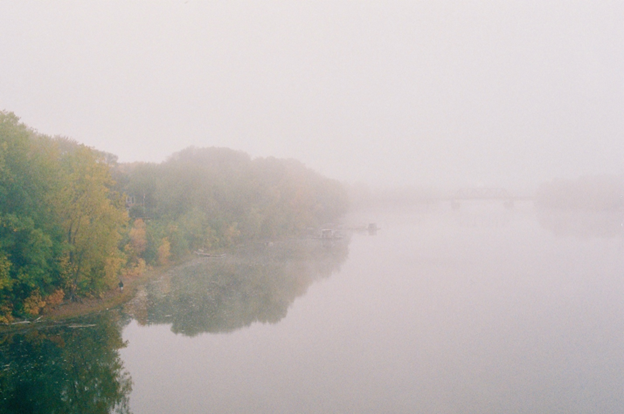
I used to do a lot of drugs. The thing about abusing substances is that it depletes your neurotransmitters. This leads to very bad depression. Combine that with being dark skinned and growing up in a place like Seattle with no real sunlight, and you get a vitamin D deficiency (aka Seasonal Affective Disorder). This makes the depression symptoms even worse. This makes you do more drugs to cope. Which make you more depressed.. which makes you… yeah.
I’d end up in the ER, in the psych ward, at the tail end of a long binge. I would be so depressed that a psychiatric hold felt like my only option. The ER doctors only ever saw me at my lowest state. At other times, I’d show up to the same ER (hi, Harborview Medical Center) in a state of stimulant induced mania. They put all of this on my chart and their natural conclusion was: Bipolar. The man wavers from depressed to manic, he must be Bipolar.
I accepted their verdict, along with the Lithium salts which promised to ease my instability. It’s very dangerous to get dehydrated while you’re on lithium. I was working as a pedicab driver at the time, so I was routinely dehydrated. One weekend, I signed up for a 3-day festival on that pedicab and… it did not end well. I felt like I was dying for 48 hours. I didn’t ask for permission when I decided to get off the lithium. Better alive & down then dead & treated.
That was only one such incident. I have a million more stories like that, stories I’d rather not tell because they’re too painful. The basic story arch was this: misdiagnosis / wrong medication / very bad effects from medication / get myself off the meds / rinse & repeat cycle.
I was beginning to lose hope, and not just from being depressed. I turned to self-medication. Look, at least with weed, alcohol, mushrooms, molly, coke, meth, Xanax, experimental research chemicals (hello, 2CB) & everything else I got my hands on, I could control the flow of feelings.
Did I care that all this drug abuse was putting me in dangerous situations (I’ve had guns pulled on me, seen close friends OD, nearly died myself so many times)? No. It didn’t really matter because, as dangerous as this life was, it was better than the eternal malaise I was in sans drugs.
Years later, I would get sober, clinging to faith as my bedrock. Faith was the only thing keeping me from going back to the Old Ways. It didn’t occur to me that all the difficulties I was having could be attributed to ADHD or complex trauma or being Autistic. I had a feeling, but I had no way of knowing. We can’t know what we know until we know it, right?
See, I grew up in this culture that teaches you to be grateful for everything. Say you come home and say “mom, dad, I’m struggling with school. I feel sad all the time, and I don’t know why.” You would get a shower sandal flying towards your head (for daring to be so ungrateful), followed by a lecture on all the people back home who would kill for the opportunities you take for granted. You might be reminded of all the sacrifices your parents made to get you to this position. The refugee camps, the bullets flying overhead, the near starvation.
You want to say something like: yeah, I went through all that, too, except I was only a child, who didn’t have any way to process that level of death and destruction, and so perhaps that’s why I’m feeling so damn sad all the time. Perhaps that’s why I can’t relate to my classmates who only ever talk about the newest shoes or the latest reality show. Perhaps I am not ungrateful, but simply drowning in sorrow so deep that gratitude is the least of my concerns.
You know you can’t say any of this so you shake your head and shuffle off to your room. Cry into your pillow or something. Jack off and hope the endorphins make the pain stop. Cry again.

These days, I work as an adjunct professor, teaching composition courses at a slew of community colleges. The nature of adjunct life is such that you take whatever courses are offered. This is how I make my living, so I pretend to be grateful for the opportunity.
At the beginning of my second semester as an adjunct fresh out of grad school, I received an email that shook my world. “Due to low enrollment, we have no courses to offer you next semester. We know that your income, as well as you health insurance, is directly tied to the number of credits you teach. We encourage you to apply for food stamps, or disability, or unemployment, or find a wife who is willing to pay your bills until enrollment turns around again. We understand that you are Somali and Muslim, and that the expectation is for you to be the breadwinner in a household. We also hear that twitter discourse dictates you need to be a 6 figure salary (with benefits) man just to qualify for a first date. We see you and hear you. Hopefully you don’t get evicted while you try to find a new basket for all your eggs.”
Okay, maybe I’m taking creative liberties with the email. Much of what I wrote is true advice I received from other adjuncts: apply for food stamps/unemployment/disability; find a partner who can pay your bills until things turn around. I did not endure 3 years of MFA hell just to end up more job insecure than ever before. It was so disheartening that I signed up for a coding bootcamp, vowing to become a well-paid techbro & leave the adjunct professor grind for good.
Just as I was losing hope, two of the colleges I have relationships with reached out. One college wanted me to teach two classes. The other college wanted me to substitute for a professor on leave (5 classes for 6 weeks). Being in dire need of the money & benefits, I said hell yes.
Never mind the fact I’m Autistic & teaching in person is terrifying for me. I don’t enjoy being the center of attention, don’t do well with group settings, despise making eye contact. My voice isn’t very loud, so I have to scream for the entire class to hear me. I end up sweating at the front of the class for an hour & fall apart immediately afterwards. This isn’t a very healthy way to live, but this is how I pay my bills. What did Vonnegut say? So it goes.
I’ve always had a soft spot for caffeine, sweets, fatty foods, and nicotine. I quit smoking cigarettes a long time ago, but a hookah addiction had crept into my life in the last few years. I wasn’t proud of it, but it served a purpose. It helped me get through the long Minnesota winters. It allowed me to focus on tasks while I smoked. I did not know that these were all signs of ADHD. I just assumed that was my coping mechanism for stress. I thought it was a personal choice. A moral failing.

Years ago, I was addicted to much harder drugs than caffeine and nicotine. Think stimulants (coke & meth, mainly). During recovery, I used self-blaming as a sobriety device. I said it was due to trauma, I made my mistakes, but now I’ve moved on. I was right, but also wrong. First line treatment for ADHD is stimulant medication. Amphetamines, to be precise. The drugs I used to abuse on the street were nearly identical to what a doctor would prescribe me had I been diagnosed with ADHD at a young age.
I wasn’t born in this country, and neither were my parents. We came here from a refugee camp in Kenya. I was 7 years old when I my family landed in Atlanta, Georgia. I watched cartoons to learn English & American Culture. School was hard, but I am a quick learner. I soon was coming home with awards and being moved up in grades. My parents were proud, but they also reminded me that failure wasn’t an option. As the oldest son in an African Immigrant family, the pressure was on me to save the family. I never had a childhood in Africa (war will do that to you). I was sad to learn that I was expected to be even more mature in America.
There’s a lot about this country’s healthcare system that my parents were not equipped to understand. Because I seemed so smart and capable, no one thought to get me tested for anything. If I complained of being tired all the time, I was told that I was still young. If I wanted to feel real fatigue, try working a double shift at the Marshall’s factory like my parents did. I was always a good son, and eternally empathetic, so I told myself I needed to try harder. I don’t blame my parents for any of this. They did the best they could with what they had. They just wanted a better life for me. They couldn’t have known what they didn’t know until they knew it. I love them for all the ways they supported and encouraged me. I don’t think I would have become as skilled in so many aspects of life if they hadn’t pushed me. I wonder what life would have been like if I’d gotten an early diagnosis. I tend to think things would have been easier, but what about the downsides?
I recently watched a Good Morning America segment on the former NBA player Tony Snell. He was getting his son tested for autism after a teacher noticed classic spectrum traits. As he sat in on those sessions with his son, he found himself identifying with many of the diagnostic questions. That led him to discover, at age 31, that he was also autistic. The GMA interviewers asked him if he’d wished he got that diagnosis earlier in life. Tony said no, definitely not. Paraphrasing, he said something along the lines of: ‘People would’ve put limitations on what I could or could not do. They would’ve put me in special classes and discouraged me from pursuing my NBA dreams. They might’ve said that’s just not something someone like you can do.’
I immediately found parallels to my own life. To make it to the NBA, Tony needed endless determination and countless hours of practice. He needed grit and self-belief. He had to push himself well beyond his limitations or others’ expectations. When I got sober, I did it cold turkey. Quitting the hardest drugs known to man requires endless grit and self belief. Returning to college after 10 years away from higher Ed required grit and self-belief. Finishing an MFA degree as a recovering addict with undiagnosed disabilities required (in my mind) even more determination than it took to find my way to sobriety. I often ask myself how much easier life would’ve been had I gotten an early diagnosis, but I rarely think about how much more limited my outcomes may have been.
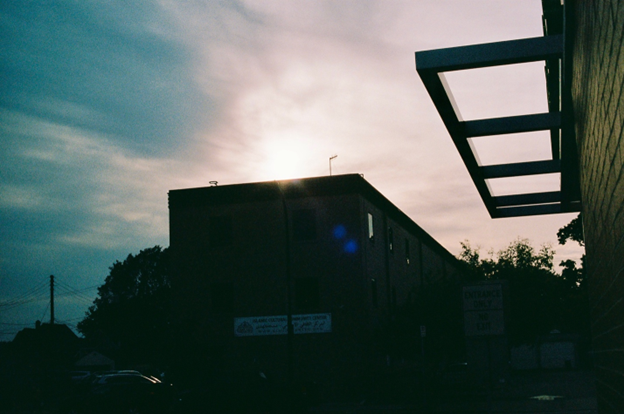
I worked as a medical interpreter for several years when I first moved to Minneapolis. A line I would often interpret, in the emergency room of a children’s hospital, was “you can’t bring your kids here for primary care. ER’s are designed for acute care, not long-term follow-up. You need to find a regular doctor and take them there for checkups.”
It was then that I realized how, all these years after we’ve been in this country, many of my people still struggle to navigate this country’s fraught healthcare system. This isn’t their fault. Even people who’ve been in this country for generations struggle to navigate it. I understand that is by design, that it ties into capitalism & money-hungry corporations disguised as hospitals. Having worked in hospitals, I understand how the bottom line is often more important than the patient. As Omar Little used to say: the game is the game.
The game doesn’t leave room for people like me. It forces us to go undiagnosed and struggle to make something of ourselves while carrying unseen burdens. Had I known I had ADHD, that I was Autistic, when I was a child… I probably wouldn’t have ended up nearly overdosing on the streets of Seattle for a good 5 years. I may have accomplished a lot more with my life. I may have gotten married and had a family by now. A mortgage, retirement plan, college fund. Golf slacks, nigga. Stock options and PTO.
But I’m Muslim, and though I lament the failings of this country, I understand that What-If’s are the devil’s playground. I believe in pre-destiny, which means there is nothing anyone could have done to change how my life played out. And I accept that. It’s not always easy, but I accept it.
I see how things played out in my life and how they continue to play out for younger versions of me. I feel it is my destiny to write, not for accolades, but to share my story. In doing so, I hope to help people avoid years of pain by getting the right supports. I know that’s a very cliché thing to say, in this influencer era that we live in, but it still bears worth saying.
Perhaps, if I my body & mind’s needs had been met, I would have been a more positive person who didn’t think so negatively of the world, even as a child. But there’s no way to answer those kinds of questions. What I do know, without a doubt, is that stories save lives. A friend told me recently: your survival story will someday serve as a roadmap to someone else’s liberation.
Perhaps I needed to go through what I did so that I could share my story with others. There aren’t very many of us (Somalis, or children of immigrants) who are brave (or stupid) enough to pursue writing as a life. It’s not easy to reject the trappings of this world when your people desperately need you to make it, to lift them out of poverty.
Perhaps a lot of people have gone through exactly what I went through, but how many of them are writers? Or: how many of them have been stubborn enough to continue writing, even when years of effort produced no tangible (I mean, fiscal) results? We may never know. All I know, for sure, is that I am honest to a fault, I love writing, and I’m always telling my story to strangers.
It may be shortsighted to make a direct connection between all the pain I’ve endured and the fact that I’m a writer now. Did I endure the pain just to become a writer, or am I writer because of the pain? Either way, I’m in a position to help light the path I’ve walked for those who may be at its beginning. Here, watch out for this pitfall. There, be careful of that monster’s lair. Turn left after the next curve. Be kind to yourself along the way, beloved.
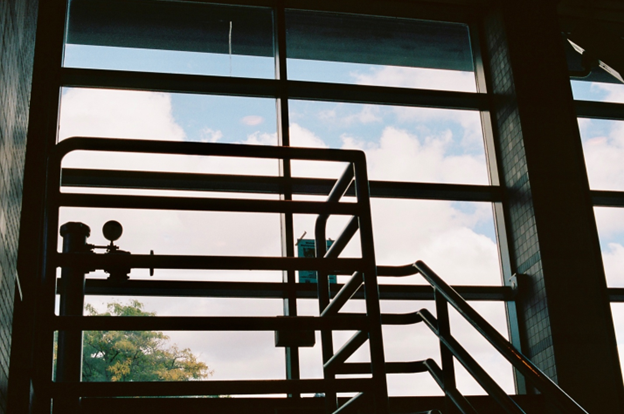
Things went like this until, one day at the doctor’s office, I got a high blood pressure reading. I was 40 pounds overweight and my blood pressure was high. I had them run a blood panel to see what my cholesterol was saying. Just as I suspected: it was higher than I’d ever seen. Oh shit.
I asked the doctor what could cause all this, and how can I change it?
Smoking, eating fast food, and stress are all known contributors to these things, Said.
I looked for a camera in the room. Surely this was a prank?
My lifestyle was a direct result of this hellish job, these uncertain circumstances. Not knowing if I would have classes to teach from one semester to the next, my health insurance always in danger of being pulled, getting ready to apply for unemployment as an employed professor? It weighed heavy on my heart, on my body, and my creative practice had been thrown out the window in favor of survival. I was numbing pain & stimulating my brain just to do my job.
Hanif Abdurraqib, in his collection They Can’t Kill Us Until They Kill Us, titled an essay “Brief Notes On Staying // No One is Making Their Best Work When They Want To Die”
I did not feel like dying, but I certainly wasn’t living. And I was so depressed that thoughts of no longer wanting to exist couldn’t have been far away. I made a decision, right then and there: YOU MUST CHANGE YOUR LIFE (shouts to Rainer Maria Rilke).
I had been diagnosed with ADHD for almost 2 years at this point, but I was scared to give medication a try for several reasons.
One, my addiction history – what if it was a slippery slope and I ended up right back in The Darkness? Two, and perhaps just as important: the cultural stigma in my community of taking medication for anything mental health related.
These things had held me back, but I figured, look: I’m self-medicating in extremely unhealthy ways. So, what the hell did I have to lose? Why not give medication a try? Why not reach out to an ADHD specialist who will monitor my medication side effects and give me guidance until we figure out something that works? And so, I took the leap…
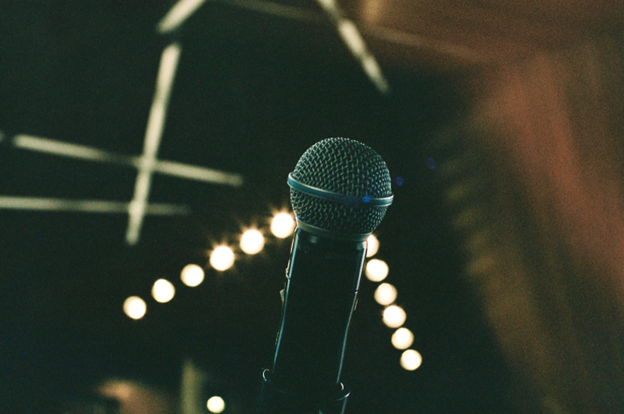
I met a Nigerian brother who had a small clinic which did ADHD medication management. I looked him square in the face and said I need help, but I am scared. I laid out my past experiences with drug abuse in painful detail. I shared all my fears and asked for his advice.
He put it to me like this:
Brother, I commend you for your honesty and self-awareness. Your concerns are valid, but let me play devil’s advocate. You were at a different place in your life during the addiction years. You were young and had no idea of your disabilities. You assumed that your dropping out of college and turning towards drugs was due to personal failing. You didn’t make the connection between school struggles and undiagnosed ADHD. You were forcing your body to do things it wasn’t capable of. I’m sure you see the COLLEGE DROPOUT section of your life as the fall, but what were your high school years like? You said you started struggling in middle school and your grades never matched your intellect. You told me you were depressed in high school and barely made it to college. We have to look at the bigger picture here.
Now, let’s look at where you are in your life. You’re in your 30s, have been sober for over a decade. You went back to school, got your BA, got your MFA, published A BOOK which was a major award finalist while you were still in grad school. You did all of this with no medication. You told me yourself that you’re still healing from the pain of those experiences. You asked your body for everything it had, and then you took some more. You have accomplished incredible things, by the grace of God, and you are at a different place in your life. You have too much to lose – you’ve worked entirely too hard to just throw it all away now.
Here’s my suggestion: let’s get you started on a stimulant medication. The non-stimulant class is too similar to antidepressants, and you’ve told me how many terrifying experiences you’ve had with those. As long as you can be honest with yourself and with me, and you take the medication as prescribed, and you watch your diet/exercise/sleep, I don’t think anything will go wrong. Worst case scenario, it won’t work and we’ll get you off the meds. We’ll try something else. But look at the alternative. As you said yourself, you are self-medicating in unhealthy ways. If these meds work, and I am confident you will be responsible in how you take them, they could change your life in ways you can’t even imagine. How does that sound?
I listened carefully and let it all soak in. I agreed with him. I was scared, but I was more desperate for solutions. I agreed to give it a try. I prayed to God for assistance. I asked Him to keep my steadfast and to protect me from relapse. I had tried everything else. Now it was time to give meds a chance. Internalized stigma about meds be damned. I was drowning, and this sounded like a life raft….
/// …. …. ///
and this is how the world ends
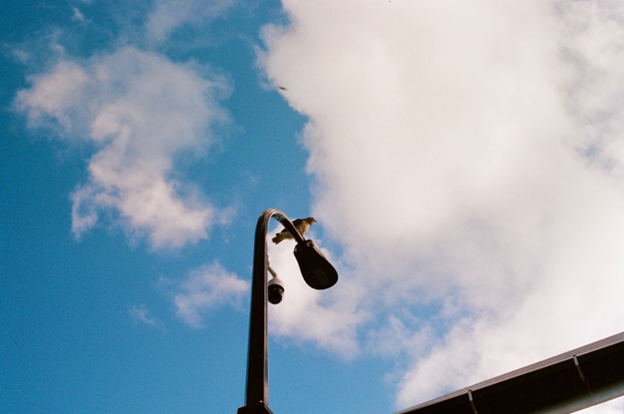
Ramadan, 2023
2 weeks of fasting. 2 weeks w/o adhd meds.
I’ve completely regressed into my worst self.
Sugar cravings every night. Random mood swings. Inability to start or finish tasks. Distracted constantly. Sabotaging relationships I’ve worked hard to build. Overthinking EVERY THING. Poor impulse control. Lethargy. Hard crash after socializing.
Poor organization. Opening a new browser tab & forgetting what I wanted to search. Snapping on people when they ask too many questions or try to socialize with me when my social battery is drained. Negative self-view. Less optimistic. More worried & scared (especially about money). Going on spending sprees (even if I can’t afford it). Falling apart. Falling so far. Fell.
A few weeks back, I started this article and called it HOW ADHD MEDS CHANGED MY LIFE. I stopped writing because something felt missing. Now that I’m back to The Old Said, Unmedicated & Ornery, I see the perspective I was lacking.
I forgot how hard my life was before I found these meds. How impossible it was to sustain momentum, or relationships. How I constantly dumped my weird feelings onto anyone who would hear me. Most of the time, it pushed people away. Maybe that’s what I wanted, or maybe The Fear made me do it. Thing is, you can’t constantly leak your worries to everyone in your life. Even if they love you, humans only have so much capacity. They will tire, and that’s understandable.
I’ve had poor self-esteem & negative self-worth for most of my life. I assumed I was born to live that way. Getting on ADHD meds, finding the right medication & dose (which is a journey and a half of itself), has changed my life. I cannot stress this enough.
My life changed so drastically, so quickly, that I forgot what it was like without them. I realize that sounds rather like addiction, or dependence, but you have to remember: the ADHD brain is not like other brains. We deal with chronic under-stimulation. A lack of dopamine or some shit. I don’t know, I’m not a scientist. I hear words and wrangle them.
What ADHD meds did for me was balance out the lack of dopamine. Make more of it available to my brain so that it could function how a brain is “supposed” to function. I put my body through hell just to get through the day without my falling apart. Even the best of medicines comes with side effects. It hasn’t been easy, but the benefits outweigh the drawbacks.
It was not an overnight fix & I had to make MAJOR life changes for the meds to work. Strict wake-up & bed times; clean, healthy diet; regular exercise; GALLONS of water per day; rest days scheduled into my med routine. I worked with an ADHD specialist to help me troubleshoot side effects & move up to the right dose when I was ready.
Living with untreated ADHD is like playing life on European Extreme Mode. Except no one tells you that your brain is working overtime just to fail twice as hard as people who seem to be exerting only half the effort you are.
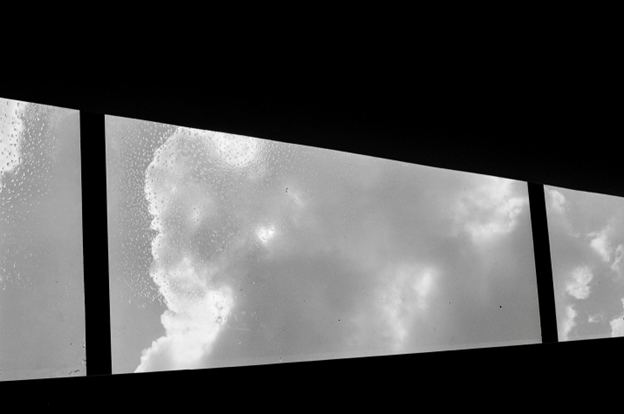
Now that I’ve been off meds for a few weeks, my body is returning to The Old Way — self medicating with stimulus seeking (anything to get a quick boost of dopamine). Food, caffeine, sugar, endorphins.
I’ve been sober since 2012. All I have left for stimulation is food & caffeine & exercise. I really can’t do any of that during Ramadan. My body has been pushed to its limits by the combination of fasting, dehydration & sleep deprivation. All I can do wait for month’s end.
I’ve noticed myself seeking more sugar at fast break time. Keeping sweet snacks nearby. Hanging out at my coffee shop more, even though I can’t drink any of it. Wanting to commit sins, but not following through, for fear of God in this Holy Month.
I am at an impasse. My life has quickly fallen apart and all it took was 2 weeks of not taking my meds + my body being stressed by the rigors of this month. I feel like a Bad Muslim when I think to myself “I can’t wait for Ramadan to be over.”
It’s not Ramadan I want to end. I love this month & am grateful for its transformative nature. It’s just that my body *quite literally* needs that medication to function as an adult.
When non-ADHD people take ADHD stimulants, they get high. They feel euphoric & do wild stuff. When we take ADHD stimulants, we feel like (what I imagine) the rest of you feel like. The first time I took meds, I looked up and immediately knew this is how the rest of you feel.
I was mad as hell. You Niggas just WAKE UP like this? Overnight I found I could have full, productive days without crashing at noon. I made small talk with strangers while standing in line. I built a social life where I met with friends in person. Hit up the gym at 6pm. In bed by 9. Asleep by 10 or 11. Up by 8am, fully rested. Rinse and repeat, even on weekends.
I had never thought that kind of life was possible for me. When friends told me about their typical day, I’d get sad and think “must be nice.”
Nigga. All I needed was the right medicine.
I had an uncle who told me once, right before I snapped on him, that I was fine but probably needed some type of medication. He wasn’t sure what, but something needed addressing. I’m sure he meant well, but I don’t do well with unsolicited advice.
I took it in the worst way possible: Are you saying I’m broken? Do you want to put me in your group home with the other broken, medicated people?
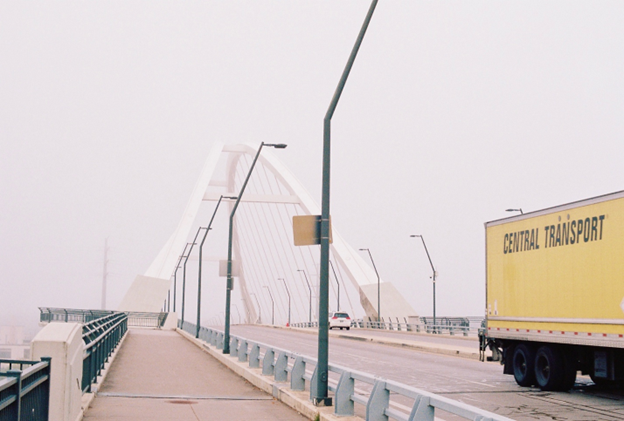
There was a lot of context for my outsized reaction. At the time, he owned a series of group homes that specialized in Somali clients. They provide a culturally relevant approach for people who need to be under long-term care, with medications. This all sounds great in theory, but in practice… it’s a lot. I had tried to work for him at one of those group homes and I fell apart. I couldn’t handle the overstimulation, but I was also bothered by the whole setup.
The fact that my uncle made obscene amounts of money from this endeavor, and that people who had similar life experiences as me were effectively trapped there… stuck on medication for years, eating the same old food, having every aspect of their life micromanaged… it really bothered me.
I remembered a time, back in Seattle, when this same uncle came to scout a location for a new group home. I was extremely depressed at the time, laying on a mattress on the floor. He came in and casually appraised me. His voice always had a robotic quality to it. I was in so much pain, and all he could see was a new business opportunity. Something about that bothered me, and I guess I always looked at him through that lens. Exploiting sick people for personal gain, ain’t that the American dream?
The other side of the argument is that if he hadn’t created culturally specific group homes, those same clients would end up in white institutions that didn’t understand their needs with nuance. A lot of the clients had complex diagnoses that needed a lot of support. I now work in the disability sector, so I see how hard it is to help people within the narrow scope of State regulations. There are so many agencies and rules and systems and so much and. It is less than ideal even in a best-case scenario.
I also realize that I’m too close to this issue to have objective thoughts on it. Being autistic makes it hard for me to hold opposing/conflicting views at the same time. I tend to see things in black and white, as all or nothing. It’s hard to see shades of grey. Every autistic person is not like this, because there’s no such thing as an autistic archetype, but I know it’s true for me. I have more compassion for my uncle these days, but back then I only felt attacked. Like someone wanted to fix me. I once heard Ross Gay say: “to fix means to mend, but it also means to kill [as in euthanize an animal]…” I wonder why this world wants to fix us so badly?

3 of the biggest blessings of my life: coming back to Islam (thank you, Allah); getting sober (drugs are hell); getting my right diagnoses (Autism + ADHD).
Being Autistic with ADHD is a unique experience. I have friends who are just Autistic and friends who are just ADHD and friends who are both. The combined experience is something I’ll struggle to make sense of for years, but I am not ungrateful.
In many ways, I relate more to ADHDers than to other Autists. The ADHD has a propensity to take over my life, while being Autistic is more of a background feature. Don’t get me wrong – I still struggle with sensory sensitivity (eating in a busy restaurant is one of my worst fears). Social situations are still challenging, but that may have more to do with an under-stimulated brain than it does with Autistic vs Allistic communication patterns. Could be a little of both, but I’m no scientist; just a dude trying to write his way to a place of understanding.
Prior to ADHD meds, I had chalked up most of my issues to being Autistic in an Allistic world. And I was not wrong! However, I completely disregarded how many parts of functioning in modern society are hampered by ADHD.
What the hell am I trying to say? I’m running out of energy.
My nigga, long story short, ADHD isn’t what pop culture has led us to believe. It is complex & subtle & overwhelming. It looks like personality traits. It looks like a Broken Brain. It is simply a shortage of dopamine in the brain. Therapy helps, but all the therapy in the world won’t change the fundamental issue.
I was against meds for a long time because of my bad experiences + cultural stigma. Now I can’t picture my life without them. I was NOT living life before this. I was riding the waves from one crash to the next. I was falling apart smiling & accepted it as my life.
I know how all this may make me sound — perhaps like an addict. Brother let me tell you: I’ve been to the deepest depths of addiction. It nearly destroyed me. I clawed my way to sobriety & learned to live a sober life. I rekindled my faith in God (by His Mercy) & put my trust in Him. I went from college dropout & hopeless addict to Published Author with a Master’s degree. A Keynote Speaker & College Professor. Always giving back to my various communities in any way that I can. I am grateful.
I know what it means to have nothing — I lost my country at the age of 3 and watched my younger brothers’ births inside a refugee camp. I learned to be an adult before I ever knew childhood. I have lived no less than 17 lives in my 35 years on this earth. I know what I am, what I am not. Perhaps I’m still an addict and perhaps I don’t care.
Medication isn’t for everyone, but I know they help me live a life worth living.
Alhamdulillah for everything, even this.
I’ve done too much explaining. Here’s a poem:
I can hear the sound of papers rustling
On the other side of the room
In this busy café, filled with noise
I can’t process which part of the noisescape
Is most overwhelming to me right now
All I know is the barista in front of me
Wonders why I’m looking out the window
Instead of sustaining eye to eye contact
All I know is these big bay windows
Let in too much light, even on cloudy
Days I wish life was easier, or made sense
Days I wish I didn’t exist, forgive me Lord
Nights I awake in a cold sweat, bad dreams
Seen people burning, hope it’s not me, I pray
I see heaven one day, screaming for forgiveness
On Judgement Day, pleading with my Lord like
Dear God, did you not see the ways I suffered
On your earth, at the hands of Your creation?
I beg thee, beloved Lord, forgive all my sins on this
Most hallowed of days, when the sun is just inches
Away from our sweating bodies, and the earth has been
Flattened like a scroll, and the humans rush from left
To right and plead forgiveness for the sins committed
Against one another, for they know that this day is unlike
Any other day which came before it, and now, just now
All they can hope is that they lived just right enough
to walk into Heaven, even if it’s a hard walk
All I can hope is that my few good deeds and my
Endless inner breakage, the tears shed, deep grief
I hope it’s enough to lift me from that eternal fire
I pray for this, and dream it, and write it, every day
This was meant to be a treatise on being Autistic + ADHD
It turned out to be a prayer and a wish, a hope everlasting
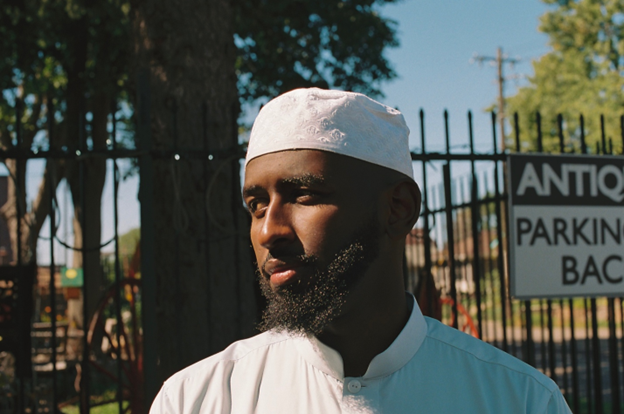
/////
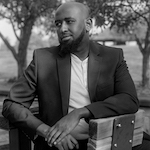
Said Shaiye is an Autistic + ADHD Somali Author, Photographer, Professor & Disability Advocate in Minneapolis. He is represented by Mariah Stovall at Trellis Literary Management. His debut book, Are You Borg Now?, was a 2022 Minnesota Book Award Finalist in Creative Nonfiction & Memoir. He has contributed essays to the anthologies Muslim American Writers at Home and We Are Meant to Rise: Voices for Justice from Minneapolis to the World. He has published poetry & prose in Indiana Review, Texas Review, Obsidian, Brittle Paper, Pithead Chapel, 580 Split, Diagram, and elsewhere. He holds an MFA from the University of Minnesota, where he was a Graduate Instructor of Creative Writing, as well as a Judd International Research Fellow. He was a 2023 Loft Windows & Mirrors Fellow. He can be reached at www.saidshaiye.com.

 BACK TO ISSUE
BACK TO ISSUE